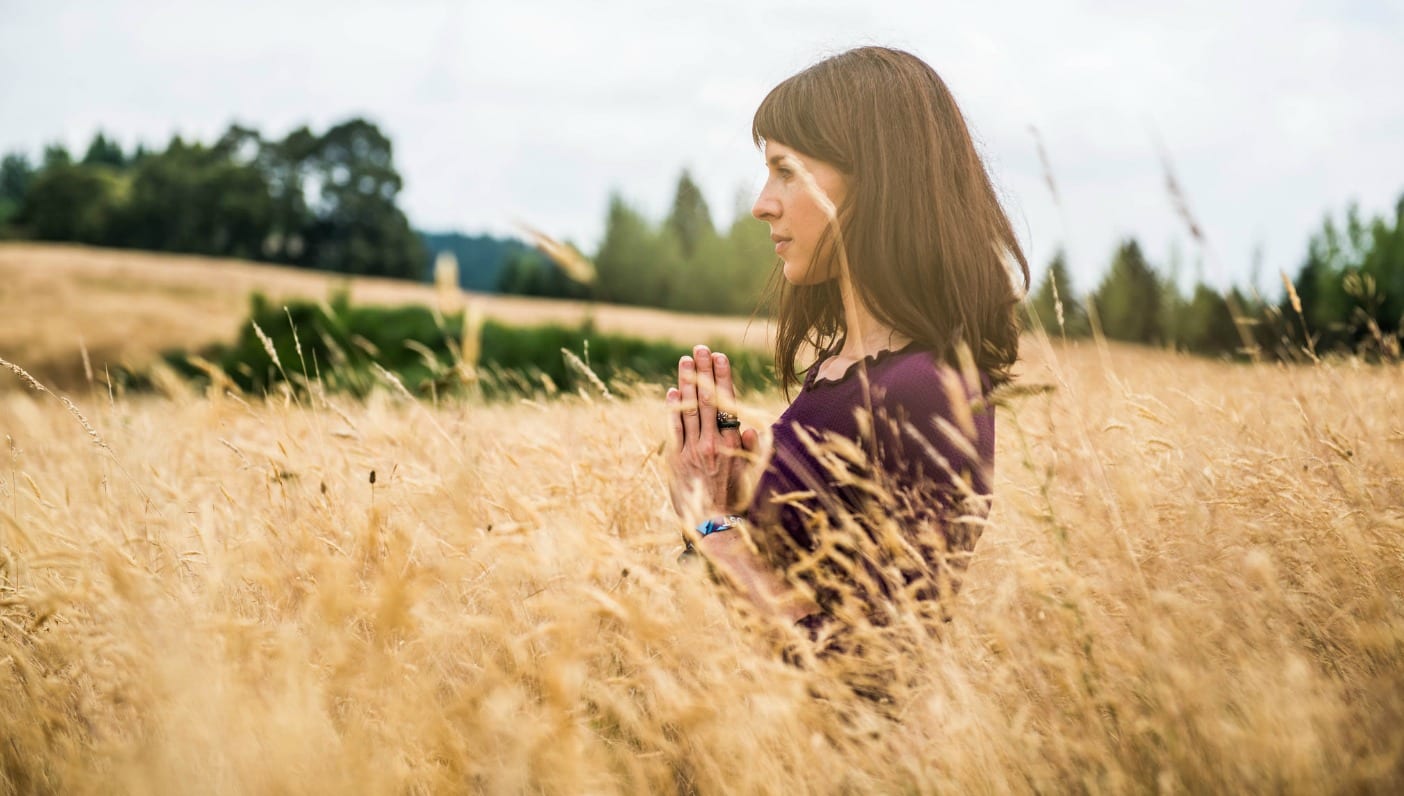
A study conducted by researchers at the University of Sussex in England revealed that long-term meditators have greater access to their unconscious states than those who do not meditate. While some may argue that this means meditators have a deeper access to what lies beyond, it can be more simple than that: Meditation allows us to become aware of how we are about to react before we do.
In experiments conducted for the study, experienced meditators seemed to be quicker in picking up on their intention to move a finger before it actually happened—reporting their intention to move about 150 milliseconds before the physical movement, compared to other participants which reported becoming aware of the intention to move about 70 milliseconds before the movement.
While these seem tiny numbers, they offer the first scientific evidence into what we often experience as meditators: With practice, meditation can help us slow our mind-chatter down enough to provide us with a chance to change our reactions. And it also allows us to observe another part of our mind (in this case the instinct to move a finger).
“The training ground is meditation, and the practice ground is life.”
Rameen Peyrow is founder of SATTVA School of Yoga. Though he was a student of raja yoga from a very young age, it was after an awakening experience at the age of 20 that Rameen dedicated himself fully to practice. In his teachings he emphasizes the importance of meditation in getting to know the mind deeply, and in altering our experience off of the mat—the ability to change our habitual reactions and conditioning,
As a first step, “meditation gives us a chance with eyes closed to sit still, and to let the content of the mind express itself,” says Rameen. That content may be past experiences, thoughts, emotions and reactions, but by practicing becoming detached from that noise, and asking the question “who am I?” we begin to create distance so that we can observe the mind.
Over time we begin to realize the thoughts we are having are directly impacting our experience. For example, in meditation perhaps we notice a change in our mood when a certain thought arises. That distance of observation affords us the chance to dissolve the thought, and to have an experience of peace instead. And that’s something that translates directly to our lives off of the cushion.
“The training ground is meditation, and the practice ground is life,” says Rameen. “As life comes towards us it is no different to when thoughts come towards us in meditation—we simply have our eyes are open. As during meditation we would observe the thoughts with neutrality, so we do this with everything that comes towards us in life.“ With practice we can, as the study suggests, see the reaction coming with enough distance to instead make a different choice—to just observe the tendencies of the mind, and to dissolve it. Through meditation we can quite literally change our lives.
This outward practice strengthens meditation and vice versa. No longer are we only practicing one hour a day, but we have the chance to practice in every waking moment.
Scientific exploration into meditation has barely begun; according to Rameen, the West is similarly still in infancy when it comes to meditation. He describes the Western yoga boom as pioneering. Alongside tech entrepreneurs, coders and other meditators, Rameen has been working on a meditation app called Science of Self that aims to get people meditating more frequently.
„All the answers to all the questions you have come from you.“
And yet Rameen notes that we’re only scratching the surface of what meditation can do. “Collectively as Western yogis we are attempting to decode meditation, and asking ourselves how does a Western mind attain these states of being? In the past 150 years we have been learning how to listen to that inner voice, but it will probably take us another 300 years to fully establish ourselves in it.”
It’s worth the practice if we want to bring balance to our lives. While we often regard meditation as something we are told to do because it’s been proved it helps us be less stressed, we should actually be rethinking meditation—viewing it as essential. Says Rameen: “All the answers to all of the questions you have come from you… So what you want to develop is an environment where you are constantly cultivating a relationship with yourself. Whatever happens in your life in every moment, is you communicating with you. You hold all the answers and possibilities to attain peace and balance—and the way to access those possibilities is to meditate.”
—

Helen Avery is a senior writer for Wanderlust Media. She is also a journalist, writer, yoga teacher, minister, and full-time dog walker of Millie, residing in Brooklyn, New York. You can find out more about her on her website, Life as Love.
